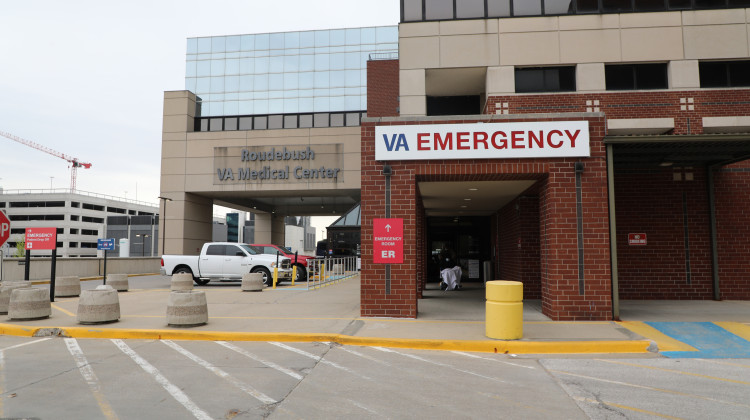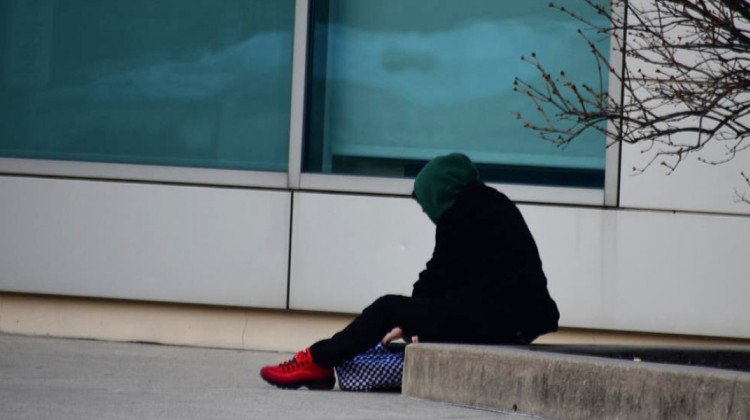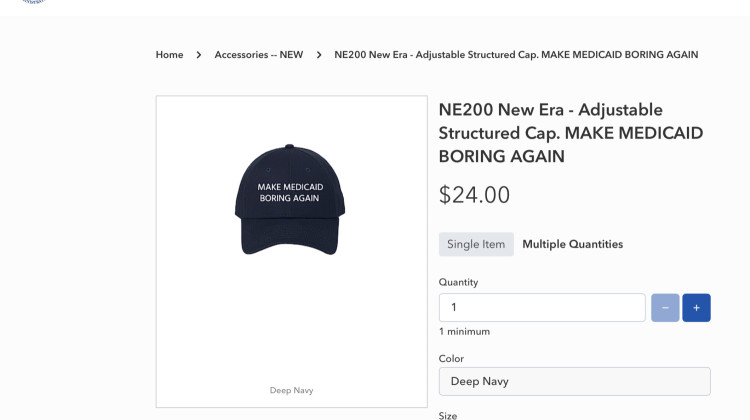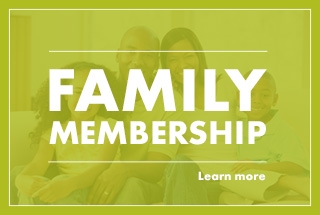CLINTON, Ind. -- With more people dying from overdose in Indiana than car accidents, school administrators are clamoring for ways to help their students avoid the temptation of drugs. The Indianapolis-based nonprofit Overdose Lifeline has started an outreach program to fill that need.
The entire student body of South Vermillion High School in west central Indiana – about 525 kids – quieted as a clean cut 29-year old took the microphone at the front of the auditorium. "My name is Aaron Miller," he said. "I’m a recovering drug addict. I’ve been sober for 11 months and 15 days."
Miller is volunteering with Overdose Lifeline, putting a face on what is today’s heroin addict. He tells them his drug abuse began when he was their age. Alcohol at 15, daily marijuana at 16 and the use of cocaine for the first time his junior year the night before playing a football game in the RCA dome. Opioid pills. In and out of jail multiple times. Half hearted methadone treatment at an Indianapolis clinic and then with his best friend Chet – he tried heroin.
“He shot me up with that heroin that first time – and I never went back to the clinic. I started shooting up heroin everyday after that," Miller told the kids. "I didn’t work. I lied, cheated, stole – just to get my fix. I hurt everybody around me. I was selfish, but I didn’t have a choice. I was addicted to this drug. I was a slave to this drug and I was willing to do anything to get it.”
Eventually, he went to prison for two felony counts of dealing drugs. After serving three years, he was released on parole. But, he was far from rehabilitated.
“I ended up going back to prison because I didn’t have a place to live," MIller said. "They violated my parole for change of address. That nine months while I was in there I was getting high. You can get any drug you want in prison.”
His parents, who had been trying to help him, finally stopped enabling him. They stopped sending him money. The guys who sold him the drugs in prison beat him badly when he couldn’t pay. He ended up in the infirmary.
“That right there is what saved me," he explained. "They put me in disciplinary segregation. You know, I was away from all the drugs, all the gangs, all the violence. I was away from it. So I kinda had a spiritual awakening if you will. So things just started making sense to me. Why would I put myself through this?”
Miller was released last year and got sober.
Senior Corey McCammon, 19, felt the impact of Miller’s message. “The fact that he went to prison a lot – I think he said like four or five times. And lived on the streets under bridges. It’s something I would never want to do or see anyone else go through,” he said.
South Vermillion Principal Don Harman believes the work of Overdose Lifeline is vital. “I would encourage every high school principal to contact them and have them speak to your student body. To me, that right there – every high school and I hate to say this, some middle schools – that message needs to get out there. Like Aaron said, 'I was a good kid – and look what happened.'”
Overdose Lifeline founder Justin Phillips, who lost her son Aaron to an overdose, says it’s important to have people like Aaron Miller share the brutal tales of his battle with heroin to help kids make better choices for themselves.
 DONATE
DONATE












 Support WFYI. We can't do it without you.
Support WFYI. We can't do it without you.